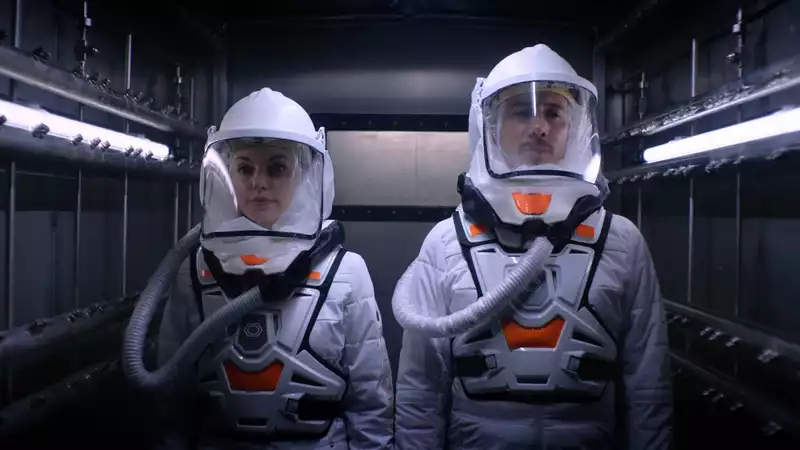One day in the near future, a woman vomits blood on the London Underground and is quietly taken to a facility that employees call "The Complex". Her body has been invaded by nanocells. Nanocells are an advanced technology with the potential to revolutionize medicine, if only its developers, including the protagonist, Dr. Amy Tennant, could solve the bloodletting situation.
Four years ago, Tennant was working as a battlefield medic in a fictional totalitarian state called Kinder. From the references to the Supreme Leader and human rights abuses, it is not difficult to identify which country inspired Lynn Renee Maxey, the game's writer and part of the writing team for the Emmy Award-winning TV series "The Handmaid's Tale."
Tennant now works for the British biotech company Kensington, which has hired interns from war-torn Kindall for its nanocell project. Figuring out why this happened and how the nanocells escaped from the lab is the first mystery you must solve as Tennant, a dubious young Canadian scientist. But the story quickly becomes, well, complicated.
"Complex" is an interactive film, and I don't use that in a pejorative sense. You sit back and watch a series of events unfold, occasionally making decisions that change the course of the story. Sometimes your decisions have a big impact, and sometimes they change very little. It is an interactive story with the most basic branching, but it has the production value of a TV drama.
There is timing in decisions, which is to be expected in a game of this type. What is puzzling about The Complex, however, is that the decisions are timed, even though what is happening on screen is not particularly time-limited. Time-limited decisions in scenario games work well when you are in a tense life-or-death situation, not when you are deciding which person in the lab to help you lift the box. At least there is an option to disable the timer.
I won't say how, but shortly after the story begins, Tennant and Dr. Rees Wakefield, a former colleague she worked with at Kindall and with whom she has a tense relationship, are trapped deep inside the complex. With gunmen at the door and a dwindling air supply, the two must find a way to survive, supported by other characters, including Natalie Kensington, the no-nonsense founder of the Kensington Corporation.
Character actor Kate Dickey, who plays Kensington, is perhaps the biggest name in the cast. Even if you don't know her name, you've probably seen her in something like "Game of Thrones," "Prometheus," or "The Last Jedi." She does a great job, although the subtlety of "Complex" is evident in the fact that she is Scottish, wears tartan-checked trousers, and drinks whiskey in almost every scene.
Al Weaver is likeable as the laid-back Rees Wakefield, and Michelle Mylett, as Tennant, does well in the lead role. The rest of the cast is cobbled together, and the script falls into the same trap as many modern Hollywood films.
"Complex" is strongest in the second act, when Tennant and Wakefield are looking for a way out of the lab. However, the relatively measured pacing of these scenes is thrown off by the end of the film, and the story rushes toward one of the game's multiple endings. I saw four of the eight endings and was impressed by how different they all were. It is possible to kill absolutely everyone and be rewarded for your efforts with achievements.
The Complex can definitely influence how the story unfolds. My biggest problem, however, is that I didn't care. In Telltale's "Walking Dead," for example, we are drawn to the characters because we become emotionally invested in them when they have to make big decisions. However, the cast is a bit too sketchy and one-dimensional to effectively stage such moments.
"The Complex" is technically sophisticated, with seamless transitions between scenes and beautiful HD visuals. The sets, lighting, and costumes are excellent throughout, and the cast does a solid job with the (mostly) uneven script. The ability to skip previously viewed scenes on replay is also appreciated, allowing the viewer to see a different ending without having to watch the same scene over and over again. However, limited interaction and a forgettable story ultimately let the game down.
.

Comments